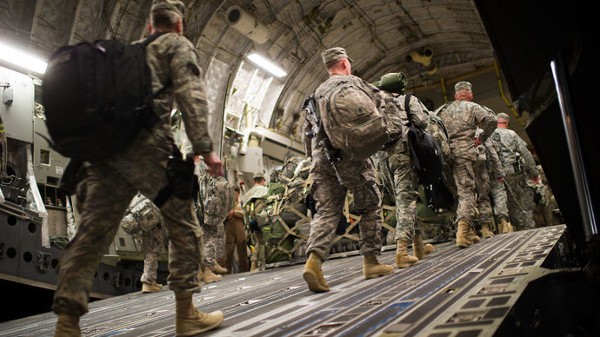

By: Agencies
Source: MWC News
The first advance detachment of US troops responsible for training moderate Syrian opposition forces will begin arriving in the Middle East in the next few days, a US Department of Defence official has said.
Admiral John Kirby, the Pentagon press secretary, said the troops, mostly special operations forces, were authorised last week and would begin arriving in countries outside Syria in the coming days, with a subsequent wave of several hundred military trainers following in the weeks thereafter.
The US focus in the campaign against the armed Islamic State in Iraq and the Levant (ISIL) group has been mainly on Iraq, with the exception of a large number of air strikes to support Kurdish fighters trying to prevent the takeover of the Syrian town of Kobane near the Turkish border.
Kirby said on Friday that Kurdish forces now control about 70 percent of Kobane, which was seen a few months ago as being near collapse, with much of it in the hands of ISIL.
He said the advanced element of US forces headed to establish training sites amounted to fewer than 100 troops.
“They’re going to … take a look at what’s there and prepare for further deployments,” Kirby said.
A second wave of several hundred trainers will deploy in the next few weeks, the admiral said.
Kirby said last week that several hundred foreign military troops were also expected to act as trainers, including forces from the host countries.
He said that active recruitment of Syrian trainees had not started, although US military officials have been discussing the matter with Syrian groups.
Kirby said Major General Michael Nagata, the special forces chief tapped to handle the training mission, has had “very productive” meetings with Syrian opposition leaders.
“But it did not lead to specific people signing up yet,” Kirby added.
US officials have said if the current momentum continues, training could begin in the spring, with the first trainees returning to Syria at year’s end. Officials plan to train 5,000 Syrian fighters a year for three years.



